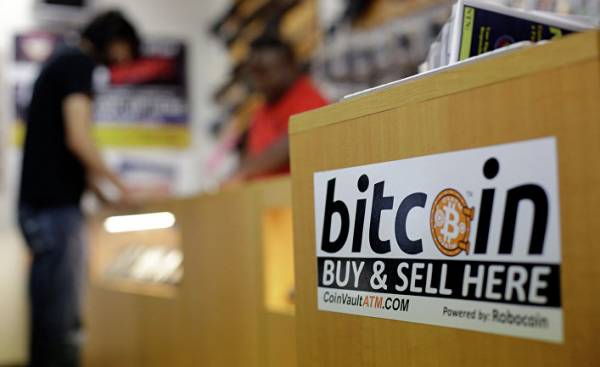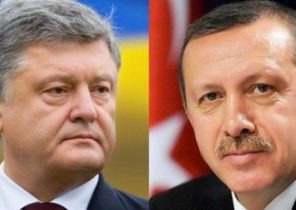
Ukrainians often jokingly say: “may you live on one salary”. Salt here — in full irony allusion to the widespread corruption that is commonplace, and often necessary phenomenon of Ukrainian life, while also inherent to the Ukrainian mentality, in which self-deprecation combined with the ability to survive in extreme conditions. In recent years, the need for this “independent” approach to everyday life has led to unprecedented technological developments.
The discontent of the Ukrainians corruption as the status quo has reached a boiling point in 2014, which resulted in the Euromaidan and the removal of Kremlin ally Viktor Yanukovych. But in addition to vivid scenes of violence and collisions that followed, the economic instability was accompanied by a digital revolution, which quietly led to a unique the introduction of digital “cryptocurrency” such as bitcoin.
Bitcoin is based on the so-called technology “the blockchain” (technology of distributed registries), “centralized and decentralized at the same time”, which helps the currency to achieve an optimal balance of safety, anonymity, and financial stability. The block chain is “centralized” in the sense that it is used for recording and tracking of digital transactions — for example, when you send a bitcoin online seller — to ensure that bitcoin actually belongs to you and is not a digital copy. Meanwhile, this accounting system while “decentralized” as it is widely distributed and is open to the public, which does not allow any party or group to act in her bypass. The result is a seemingly an open and transparent monetary system.
Ukraine enthusiastically jumped at the idea of bitcoin. Many people used this currency as a hedge against extreme inflation and an unstable hryvnia, which is due to the protracted crisis has lost 80% of its value. In 2014, about five thousand of ATMs BNK-24 across the country have begun to offer as an option the purchase of bitcoins for cash, which were made as easily as any other automated Bank transaction. Last year, one Ukrainian service of selling bitcoins, has posted a fivefold increase in demand, and the country also became the first regulated market in the world that started to offer futures contracts based on bitcoins.
But perhaps most notable is the fact that the Ukrainian government has sought to apply the transparency of these promising technologies in the process of the sale or lease of state property at auction. In 1991, after the collapse of the Soviet Union, Ukraine was a kind of “revolution without revolution”. The basic power structure remained intact, despite the supposedly more democratic government that was limited, perhaps only those that have changed job titles on their business cards.
As he writes in his book “History of Ukraine: birth of a modern nation” Ukrainian historian Sergey Ekel’chik: “the New elite was essentially the old Soviet bureaucrats in the Ukraine, which came to power more the result of Imperial collapse, rather than revolution, and therefore did not feel the need to develop democratic institutions and market economy.”
While the former party elites maintained their positions of power under a different banner, the process of selling state assets to the private sector has become a lucrative target for those who prefer unethical marketing practices. If the auction process was under the control of a small group of elites, access could be used in order to curry favor and to fill the pockets of influential oligarchs in the country. As the deposed President of Ukraine Viktor Yanukovych and former Prime Minister Yulia Tymoshenko, nicknamed the “gas Princess” for the state, which she amassed in the gas industry, are among the high-ranking officials alleged in court documents, profitably resorted to such practices.
In July last year in Odessa at a conference on blockchain technology — we are talking about one of two Ukrainian conferences, held in 2016, and collected the maximum possible number of guests and participants — Minister of Finance Oleksandr danylyuk outlined plans to turn the auction process from a paper system to one that is based on blockchain technology (the”Auction 3.0″), with the aim of ensuring the publicity and transparency of transactions. The effectiveness of the system — which represents one of the components of the project “Cashless economy”, implemented by the National Bank of Ukraine and is scheduled for the period up to 2020, promises a number of additional benefits, including significant cost savings and a sharp reduction in the bureaucracy required to manage the system.
The moment selected for such a hard chase behind the digital currency, is not devoid of a kind of sad irony. Ukraine, perhaps more than other countries suffered from the foreign policy shifts that followed the election of a President Donald trump. In view of the unequivocal trump’s willingness to curry favor from Russia, whose permanent military presence in Ukraine is the country the cause of many economic ills, the Ukrainians, who had hoped for a more rigid position of the United States, we have to observe how they escape opportunities. Having a long history on the West-facing diplomacy, even under the Soviet regime, by the end of 1990-ies, the country became the third largest recipient of us foreign aid despite the fact that achieved independence only in 1991.
Thus, just at the time when the idealized ally, which Ukraine took a sample, creating its own Constitution, rushes headlong to where Ukraine has long sought to escape, readiness to search for new ways in the name of transparency is a commendable example to the American political sphere, which is increasingly leaning to the deliberate obfuscation and “alternative facts.”
Ben Cairns — Director of public relations and a political analyst at the R Street Institute, a Washington think tank that promotes free market.






